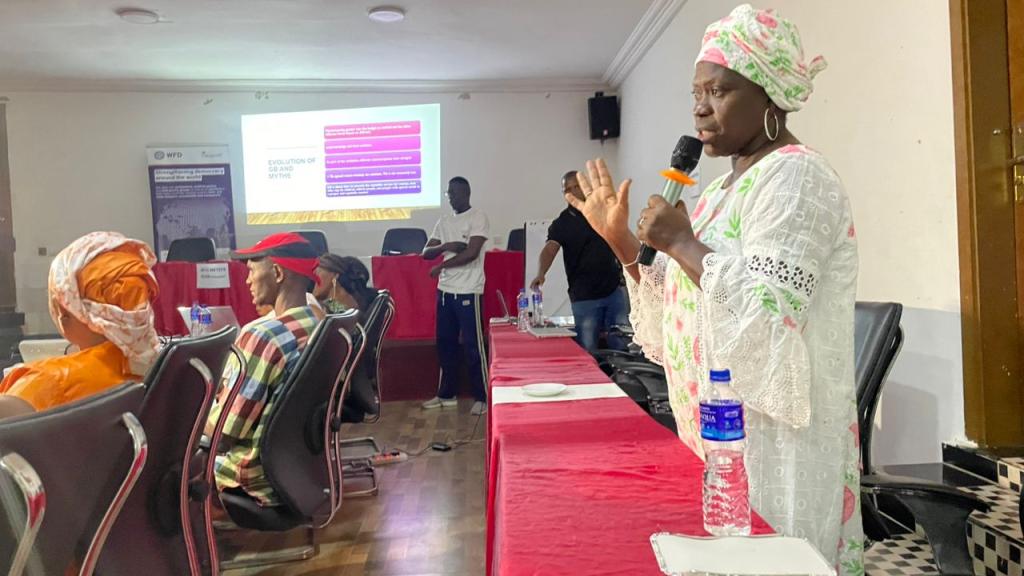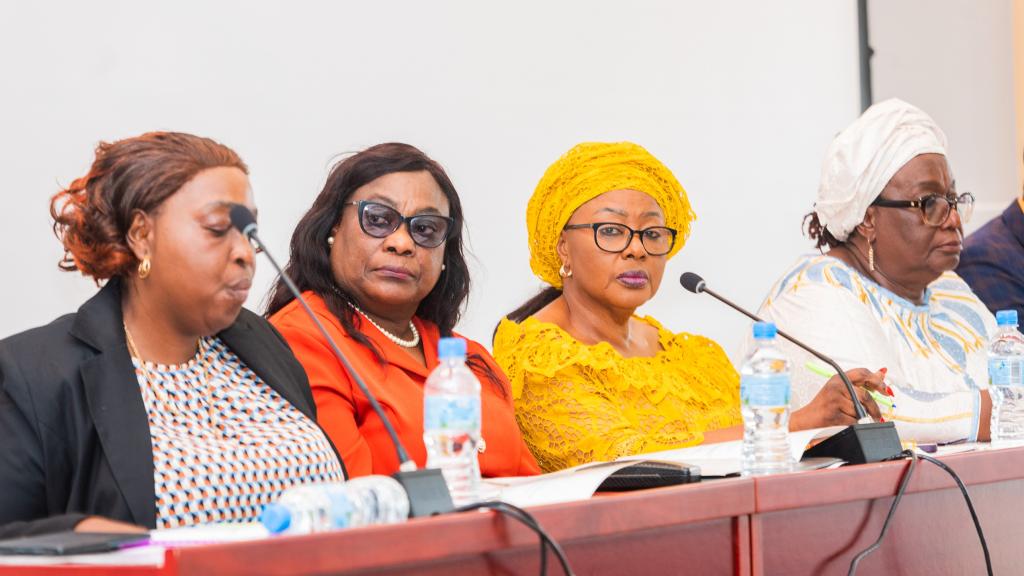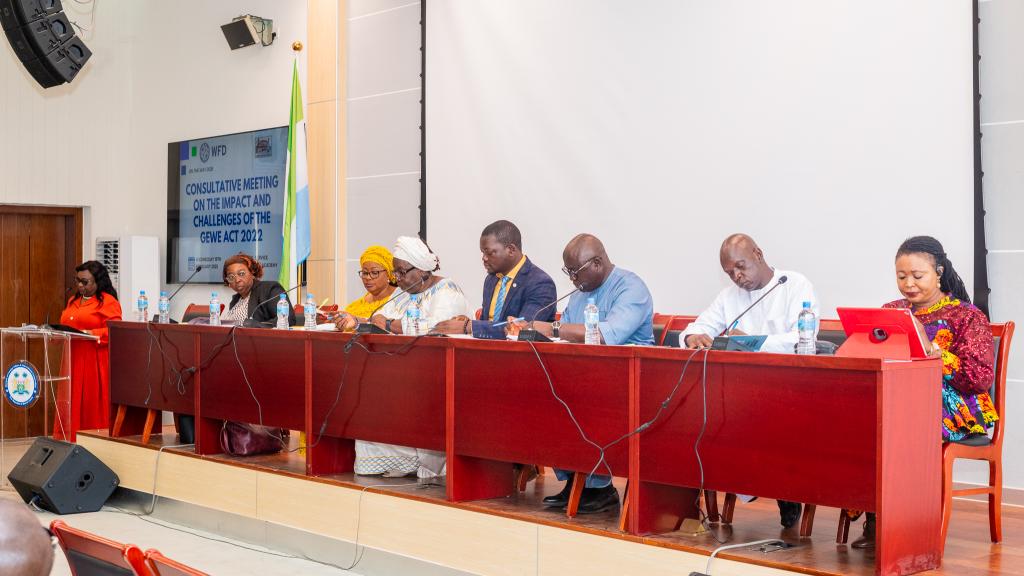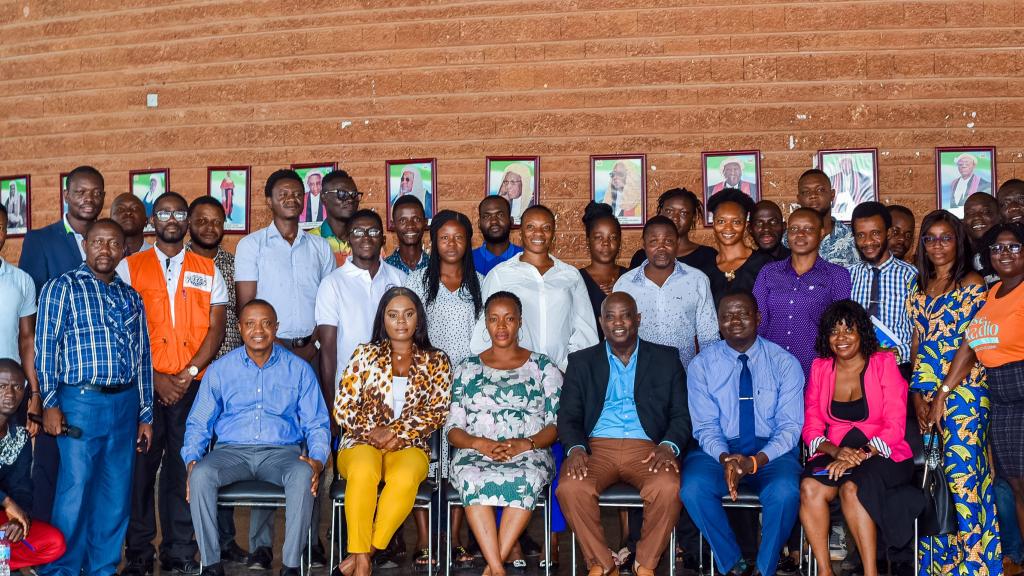Strengthening parliament and women's leadership in Sierra Leone
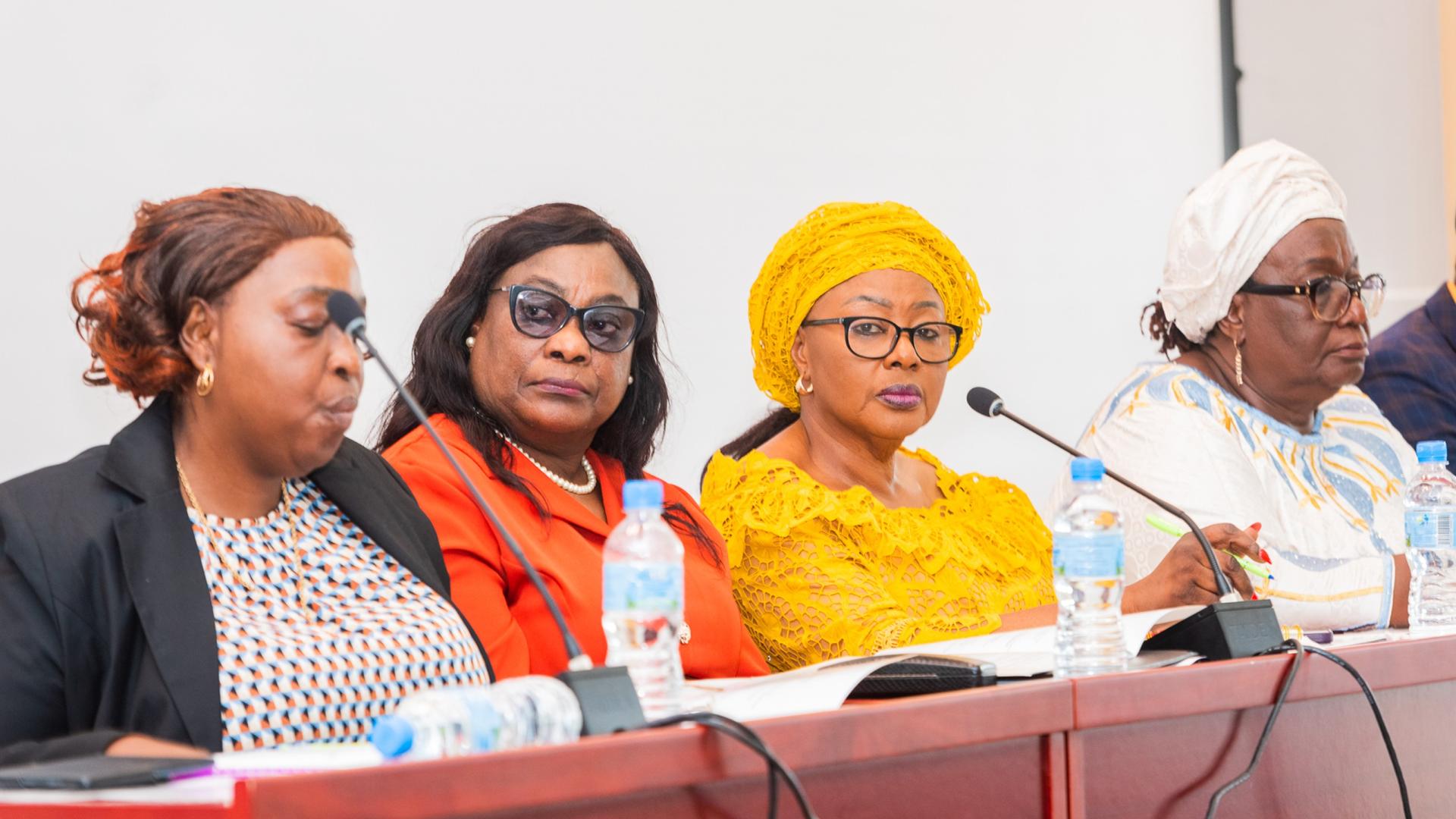
Throughout the Grant-in-Aid (GIA) programme, WFD’s work has focused on strengthening the role of parliament in promoting democracy, enhancing public debt oversight, supporting women’s political leadership, and deepening civil society engagement. In the last quarter, this work culminated in several landmark achievements.
One of the most significant advances has been in parliamentary oversight and technical capacity. Through targeted training in post-legislative scrutiny (PLS), 12 members of parliament – supported by the Office of the Law Clerk – are now equipped to monitor the impact of legislation and propose evidence-based reforms.
Equally notable is the introduction of the Public Debt Management Assessment Tool (PDMAT), which brought parliament into key conversations on national borrowing. By engaging high-level stakeholders – including the Deputy Speaker, the Public Accounts Committee, the Ministry of Finance, and the World Bank – this work has laid a foundation for enhanced fiscal transparency and accountability
The programme also made substantial gains in women’s political leadership, particularly through support to the Parliamentary Female Caucus. The Caucus emerged more unified and assertive, increasing its participation in plenary debates and setting the agenda around the implementation of the Gender Equality and Women’s Empowerment Act. The widely recognised Orange Day ceremony and national consultations have added momentum for legislative change and helped shape the new Female Caucus strategy.
Meanwhile, WFD’s facilitation of the Parliament–Civil Society Network (ParlCSONet) has created a durable platform for civic engagement. Civil society organisations are now meaningfully embedded in parliamentary processes, with an operational Steering Committee and regular community feedback sessions. These efforts were showcased as a standout Open Government Partnership (OGP) initiative at the recent regional meeting held in Nairobi.
As Sierra Leone’s political institutions continue to evolve, WFD’s work has helped lay a foundation for longer-term democratic reforms. Key opportunities remain in further advancing women’s political leadership, institutionalising citizen engagement, and reinforcing parliamentary accountability. The challenge now is to consolidate these gains and build a new chapter for a more inclusive, accountable governance.
